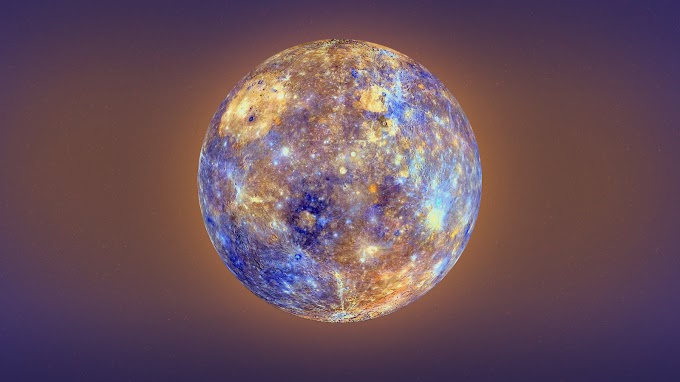Venus- The hotspot
Venus is the second closest planet from the sun. Venus is the planet that we can see and observe by our nacked eyes. It is one of the brightest objects in the sky during the evening sky. It was named after the Roman goddess Venus, the goddess of love and beauty.
 |
| venus source: NASA |
Venus is similar to earth in many ways such as the size of that planet is very similar to earth and it also has earth like the solid iron core but unlike the earth, it does not have the magnetic field around it so it is unprotected from cosmic rays. Most of the planetary geographical features are named after women who did some notable contributions to art and culture to the human society. For example, this below image is the crater which is named after Emily Dickinson.
 |
| Dickinson crater source: NASA |
Venus has a very dense atmosphere, which consists of acidic clouds of Sulphuric acid and Carbon dioxide. The amount of Carbon dioxide is so high that it causes a huge greenhouse effect on the planet.
Some cool facts about the venus:-
- Venus's atmosphere consists of mercury, ferric chloride, hydrocarbons, and sulfuric acid which are very corrosive in nature, makes it the most corrosive acidic rain ever in the solar system.
- Which planet did you think is the hottest planet in our solar system? You probably thought of mercury because of its distance from sun but guess what venus the hottest planet, average temp on venus is around 500℃.
- The surface of Venus is like molten lead.
- The first successful mission os the venus is Mariner 2 by NASA on 27 August 1962.
- Other missions on the Venus are Tyazhely Sputnik on 4 February 1961 and Venera 1 on 12 February 1961 by the soviet union.
- The latest missions are from JAXA(Japan Aerospace Exploration Agency) is Akatsuki launched on 20th May 2010.
- Another one from the JAXA is Shin'en and Ikaros, which are the part of the Akatsuki mission.
Thank you for reading our blog. Give your suggestions in the comments and follow our blog for more. What other topics you want to read? Tell us in the comments below.
Continue discovering the space...







0 Comments